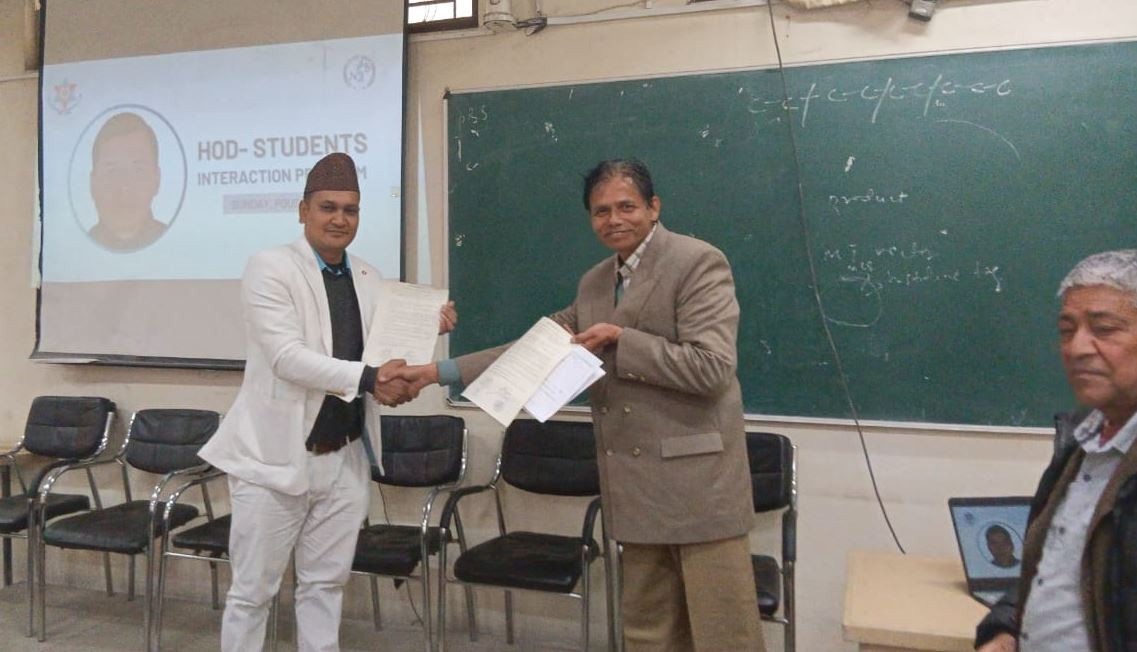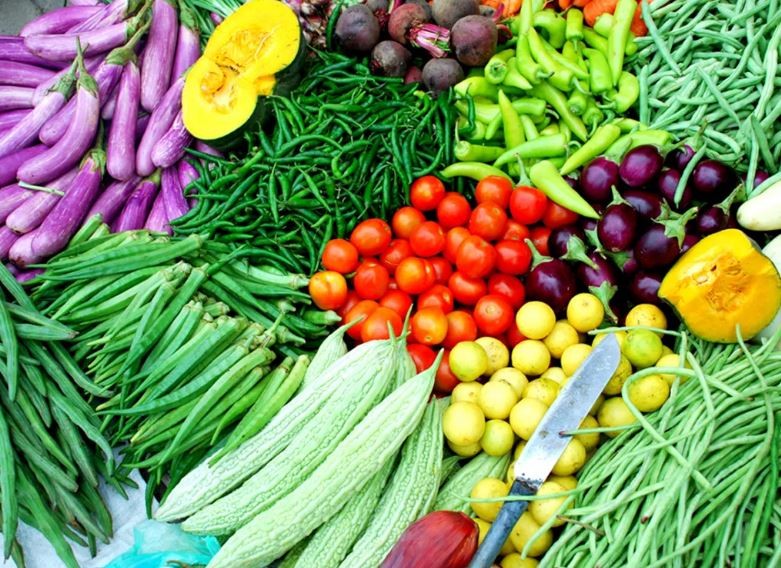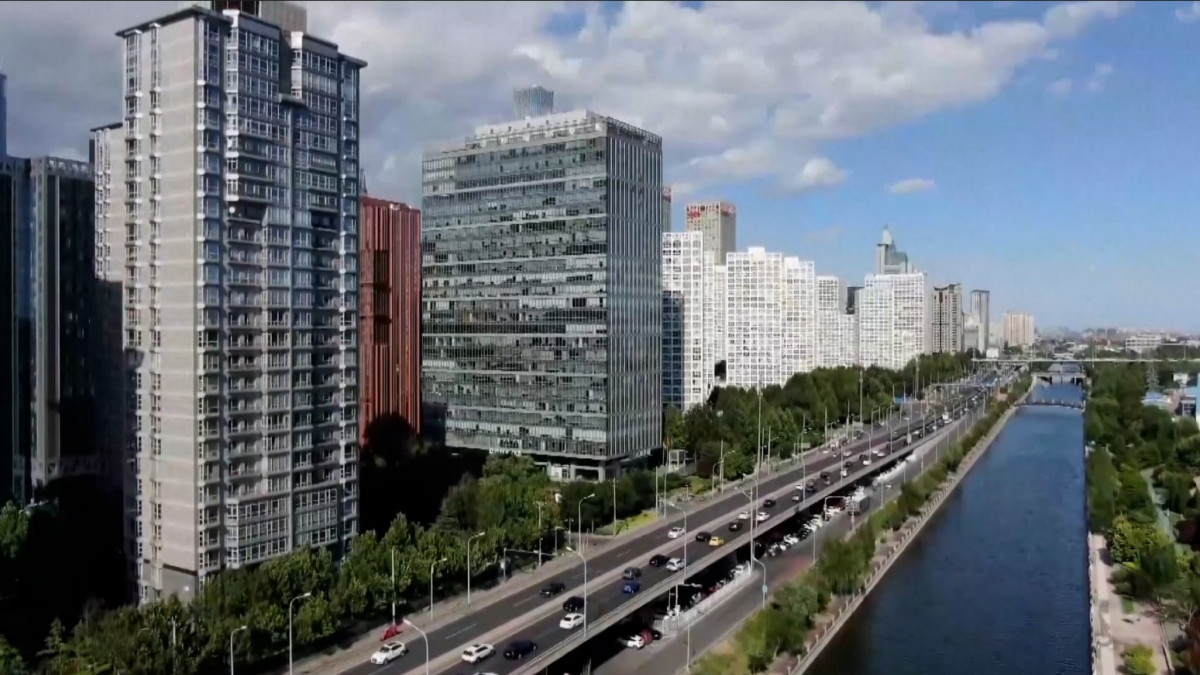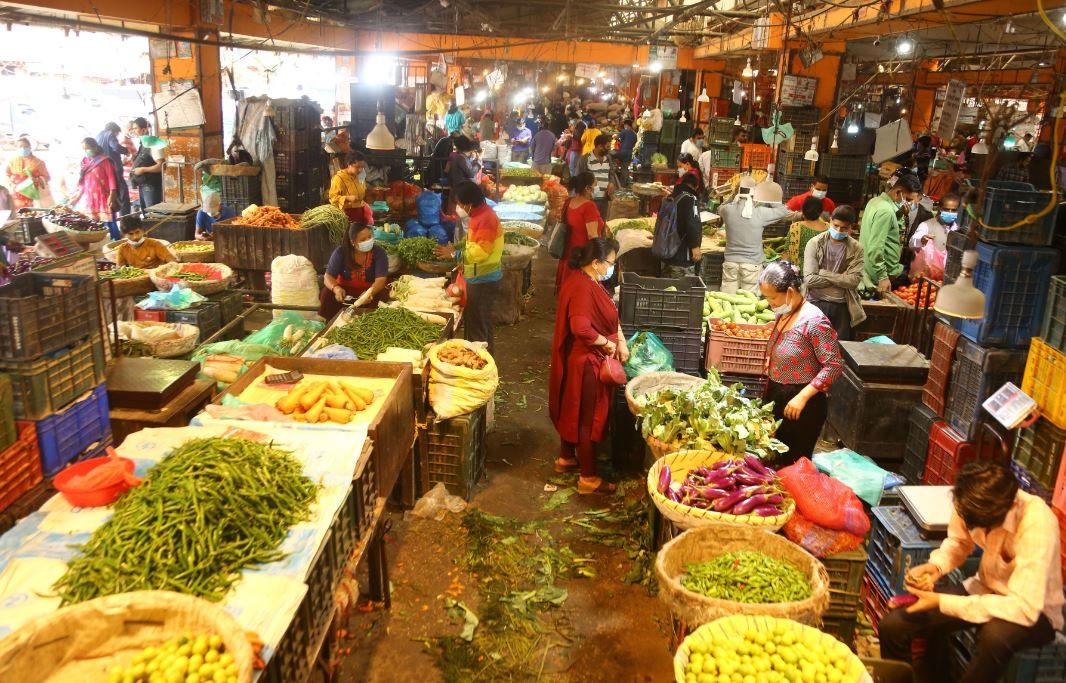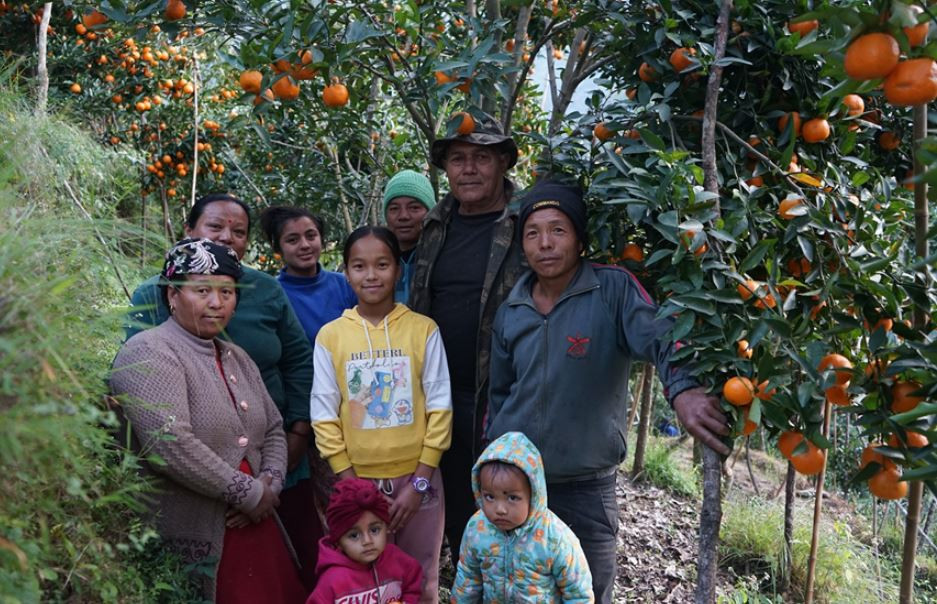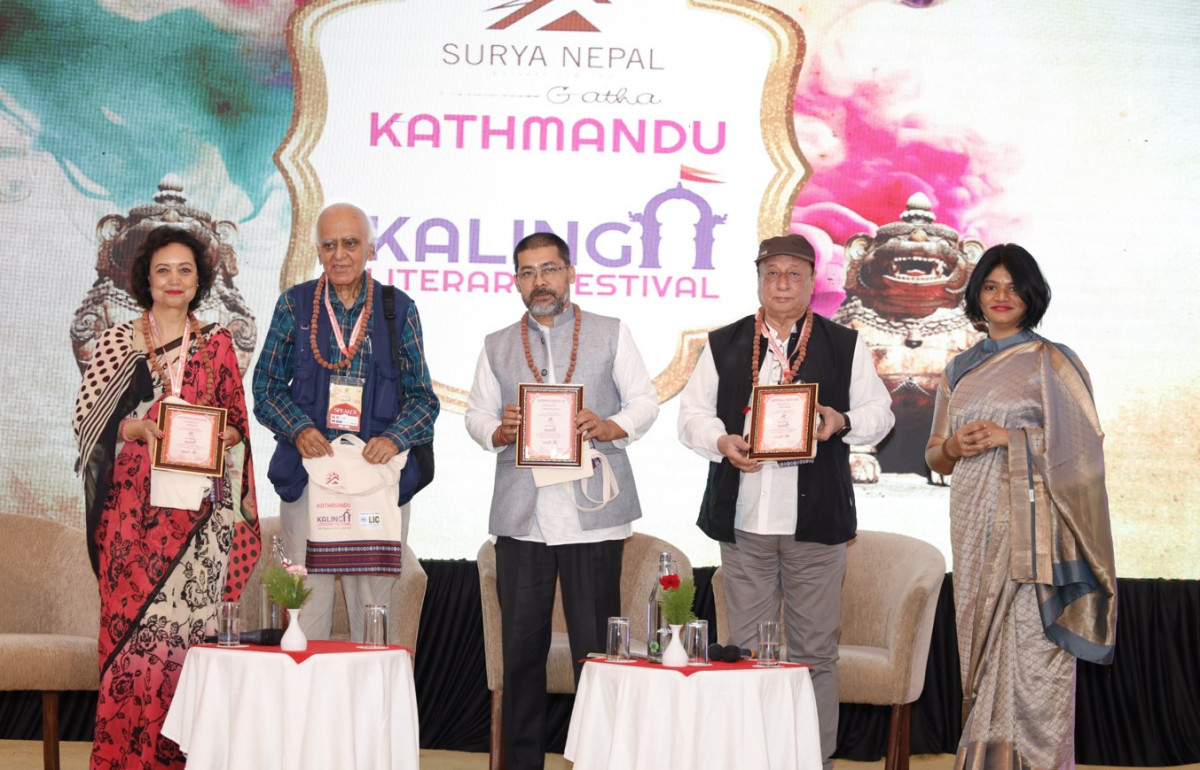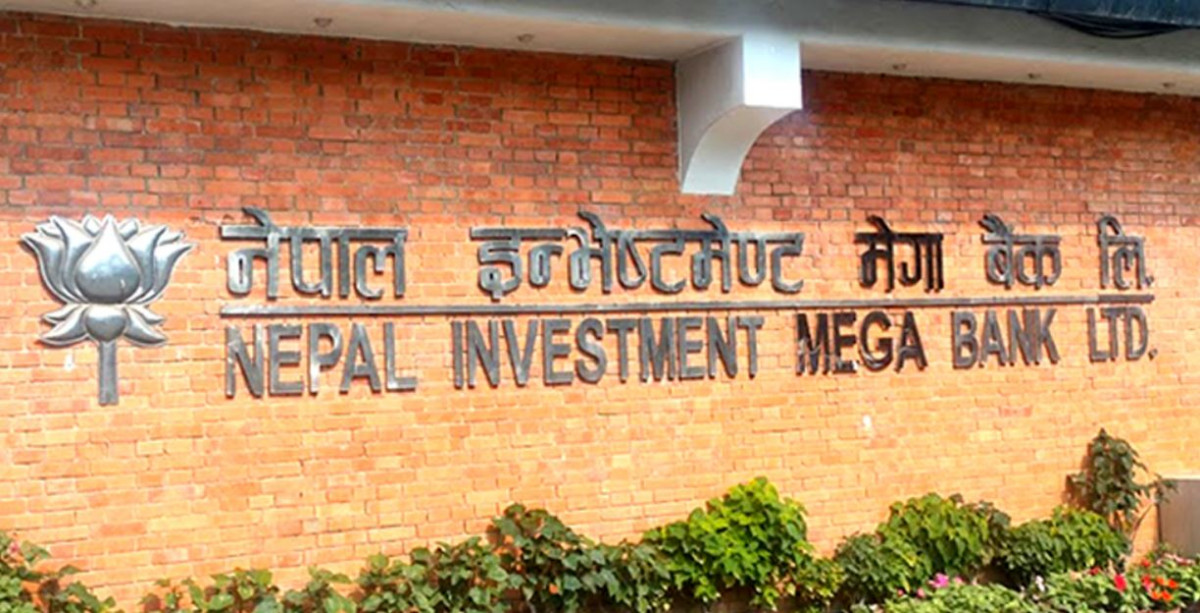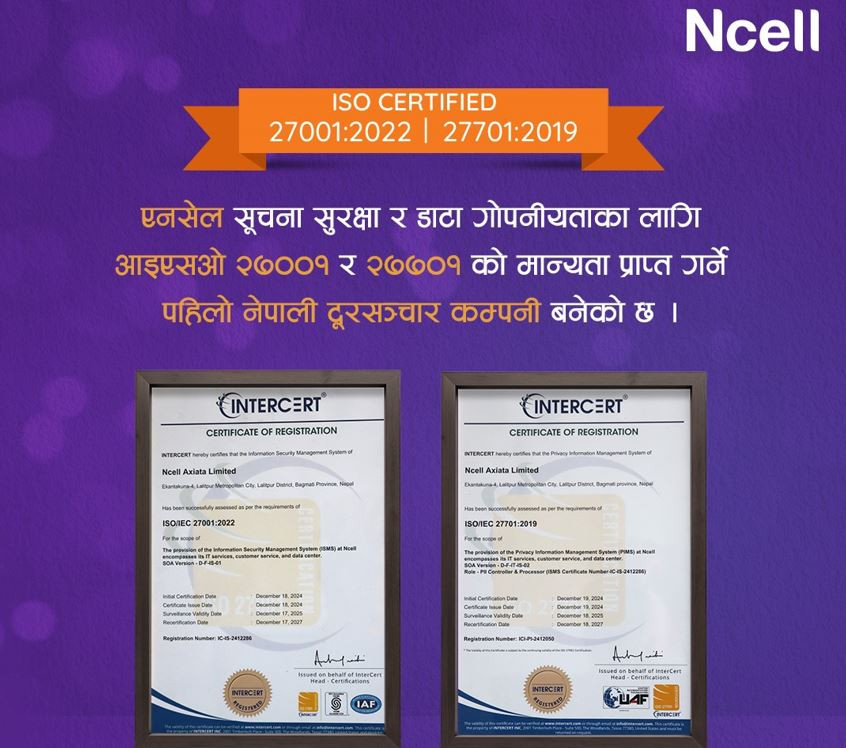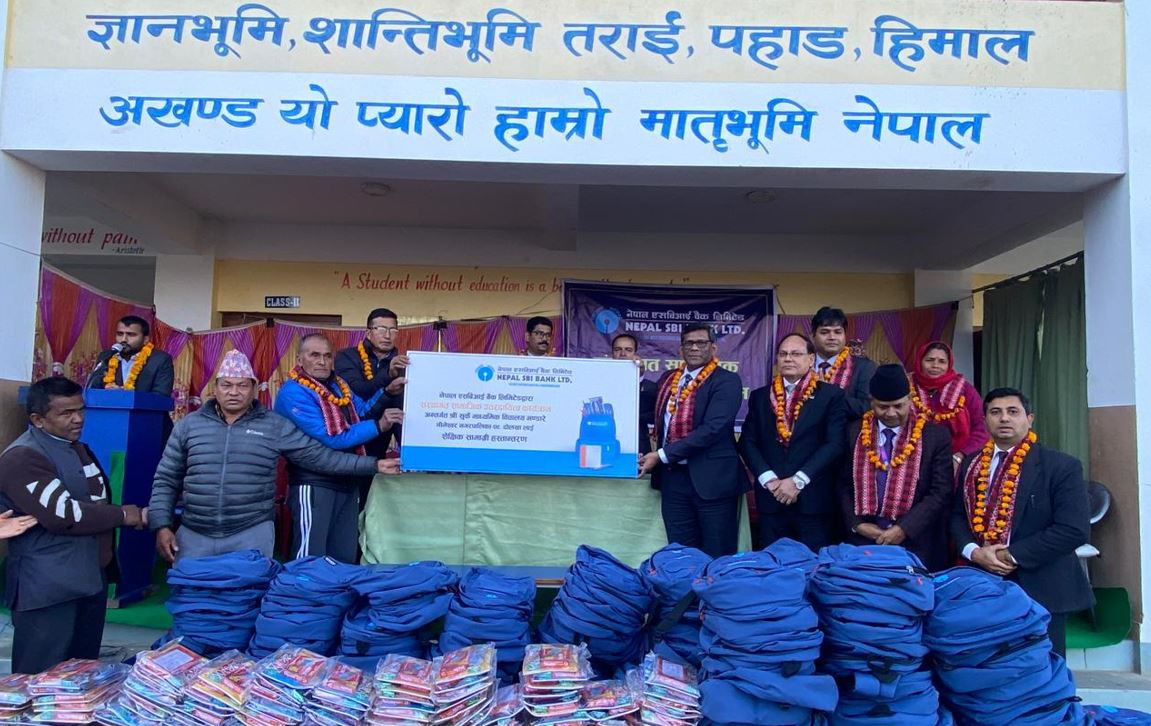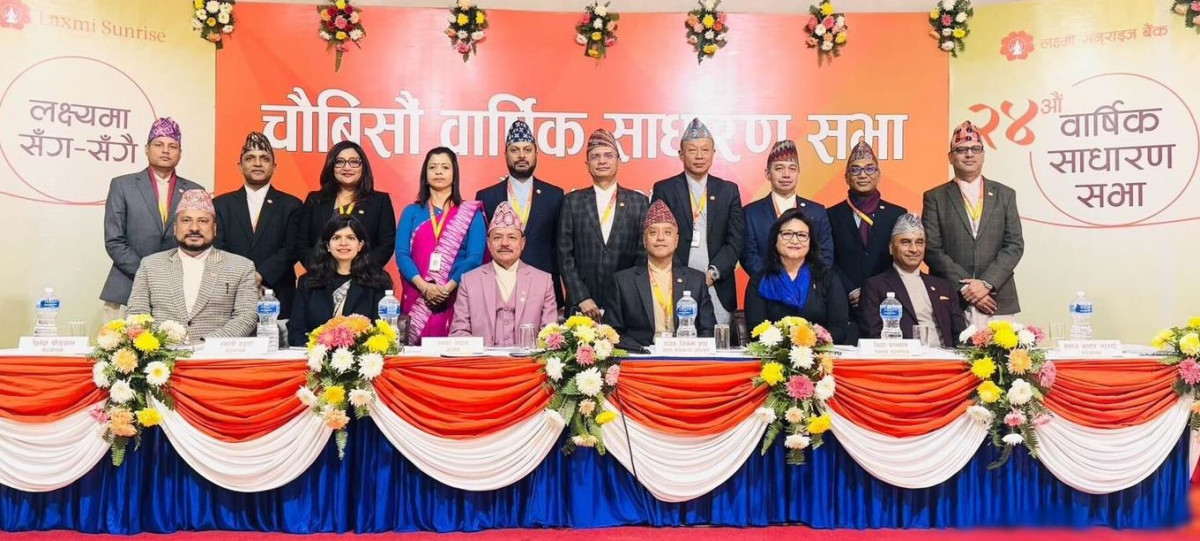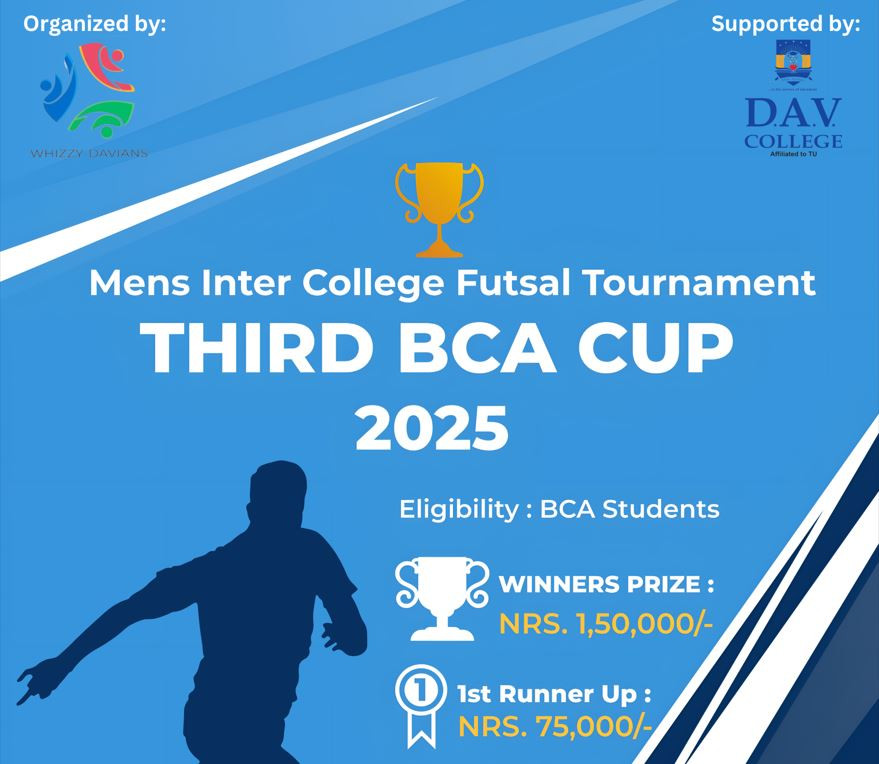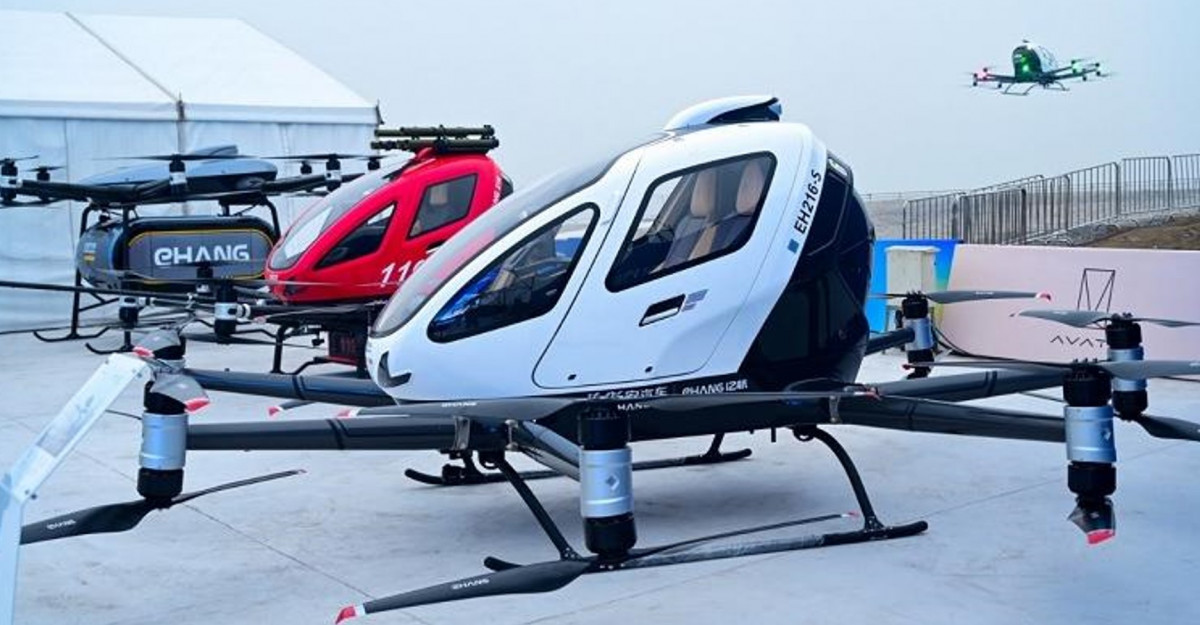Kathmandu/ The first day of the third edition of the Kathmandu Kalinga Literary Festival (KLF) concluded at Hotel Hima-laya in Lalitpur. The two-day event, themed “Nepal: The Gateway to Asian Art, Culture, and Literature,” was jointly inaugurated by Bhupal Rai, Chancellor of Nepal Academy, KLF Founder Rashmi Ranjan Parida, Kathmandu KLF Director Ranjana Niraula, Deputy Chief of Mission of the Embassy of India in Kathmandu, Shri Prasanna Shrivastava, Dr. Bhuwan Dhungana, Indian diplomat and novelist Lakshmi Murdeshwar Puri, and Indian economist and writer Sanjeev Sanyal.
During the inaugural session, legendary poet Dr. Bhuwan Dhungana was honored with the Yashaswi Sahitya Samman. Additionally, the Yashaswi Book Award 2081 was presented to six books across five categories.

The awardees include Devvrat for his poetry collection ‘Aswasthamako Nidharbata Bagmati Bagchha’; Muna Chaudhary for her fiction ‘Laar’; and Momila Joshi for her non-fiction work ‘Prashnaharu Ta Baki Nai Ra-hanchhan’, an award she shares with Arun Gupta for ‘Sanskriti Chintan’. Additionally, Rohini Rana’s ‘The Nepal Cook Book’ (English) and Yagyaraj Upadhyay’s research work ‘Kali-Karnaliko Lok Sahitya Tatha San-skriti’ were also recognized.
Each recipient received a prize of Rs 20,000 along with the award.

The festival brings together over 300 writers from Nepal, India, Bhutan, Sri Lanka, and other South Asian na-tions, fostering a rich exchange of literary and cultural traditions. It promises a grand celebration of literature, art, music, and culture, further strengthening Nepal’s role as a central hub for Asian cultural dialogues.
According to Ranjana Niraula, Director and Founding Member of KLF-Kathmandu, “The Kathmandu Kalinga Literary Festival will celebrate the longstanding cultural ties between Nepal, India, and South Asia, while of-fering a platform for deep discussions on the evolution of global cultures.”
Rashmi Ranjan Parida added that the festival serves as a common platform for cultural exchange between Ne-pal and India. He remarked, “It’s hard to pinpoint when Nepal and India’s shared journey began, and it contin-ues today.”
Chancellor Bhupal Rai highlighted that the festival connects people globally through cultural interactions. He said, “This festival is an exercise in connecting the world with humanity through cultural activities and inter-actions. It bridges South Asian countries and brings people together across distances.”

Deputy Chief of Mission Shri Prasanna Shrivastava also emphasized the festival’s role in strengthening Ne-pal-India relations. “This prestigious Indian festival has been held in Kathmandu, a city rich in culture, for three years. India and Nepal share a longstanding relationship, with deep heritage ties. The festival’s main ob-jective is to spread Nepal’s art, literature, and culture across Asian countries and to foster an exchange of ide-as between Nepal and India,” he said.
In the session titled “Nepal: The Gateway to Asian Art, Culture, and Literature,” the panelists included Dr. Abhi Subedi, Uday Prakash, and Rohini Rana, with Chandra Dev Bhatta as the moderator. Dr. Subedi high-lighted that the people of this land have performed miracles in architecture since the Lichchhavi period, not-ing that “the architecture back then was inspired by faith and religion.” Meanwhile, Rohini Rana emphasized that food is also an essential part of art and culture.
During the session titled ‘Rethinking Development and Diplomacy in the Digital Age’, former Indian ambas-sador to Nepal, Ranjit Rae, emphasized the importance of credibility in diplomacy. He noted that people play a central role in influencing government decisions, pointing to recent events in Bangladesh and the 2006 peo-ple’s movement in Nepal. “People are at the center of everything. Public diplomacy has played a huge role in India-Nepal relations, not always positively. It can work both ways,” Rae remarked.
Reflecting on his tenure as ambassador during a challenging period, Rae recalled, “I was in Nepal during the constitution-writing process and the protests in Tarai.” He also mentioned his book, ‘Kathmandu Dilemma: Resetting India-Nepal Ties’, which he wrote to address misconceptions about India’s role in Nepal.
In another session titled ‘Writing as Aspiration’, Rae stressed the importance of self-research on regional his-tory and heritage. “What is written about us in the West need not align with our own narratives. It is up to us to research and write about our history,” he said.
In the session titled ‘The Art of Storytelling in Film’, Sujit Bidari, director of ‘Ainaa Jhyal Ko Putali’, shared his experiences and offered advice to aspiring filmmakers. “You have to revise the same film a thousand times. You can’t judge what’s happening at the moment. It’s impossible to remain objective after watching repeatedly,” he explained. “So much energy, budget, and time have been spent. If you can’t make a judgment even at that point, what will your state of mind be?” Bidari emphasized that to become a filmmaker, the more content you consume, the more creative ideas you generate. He noted, “The more you reflect and look inward, the more creative content you uncover. Detachment from oneself is the first condition. Once you’re detached, you start seeing stories everywhere.”
In the session titled ‘Voices of Tomorrow: Emerging Literary Talents of South Asia’, panelists included Badri Narayan, Ranjan Adiga, Sumit Sharma Sameer, and Mahendra P. Joshi, with Prof. Kamala Kanta Dash moder-ating. Ranjan Adiga addressed common misconceptions about younger generations: “I won’t generalize to-day’s generation, but there are variations in all generations. The idea that Gen Z isn’t reading much is a myth.” He added, “While attention spans may have decreased, platforms like social media and Netflix have actually helped this generation engage with literature, art, and culture. Literature has always struggled to find an audience, but that's not new.”
Sumit Sharma Sameer emphasized that today’s generation still enjoys movies and books, but only those that stand out. “Writers and producers must ensure they are creating exceptional works. The same old methods might not attract audiences like they used to.”
Badri Narayan noted that while education and social concerns are evolving, writers still hold importance and credibility. Mahendra P. Joshi highlighted the significance of marketing to capture the attention of younger readers. “Writers should understand what the new generation likes,” he said. “Writing about the US for a young American audience might not resonate, so in my book ‘Rockin’ Rollin’ Rolpa: Know America, Explore Nepal’, I focused on Rolpa, Nepal. The story follows a 24-year-old from rural Rolpa on his travels, connecting rural Nepal with America, and it struck a chord with the audience.”
The first day featured around 27 sessions, including ‘Laws for Women: Differences Between the Constitution and Treatment’, ‘To the Moon and Back’, ‘Bridging Heritage: Cultural Synergies’, ‘Media, Literature, and Social Responsibility’, ‘Bridging Worlds: The Art of Publishing and Translation’, ‘The Role and Future of Literature in the Age of AI’, ‘Recent Developments in Literature Translations from Nepal’, ‘How Significant are Literature Festivals?’, and ‘Nepal Bhasa Script and Literature: Past and Present’, among others.
The Kathmandu Kalinga Literary Festival is organized in collaboration with Yashaswi Prangya Pratisthan and Himalayan Diary Pvt Ltd, with Surya Nepal Gatha as a supporter and Life Insurance Corporation (LIC) Nepal as the presenting sponsor.
For more information, visit the official website of the Kathmandu Kalinga Literary Festival or contact: Mo-bile: +977-9841410528, E-Mail: - [email protected], [email protected]
About the Kathmandu Kalinga Literary Festival
The Kathmandu Kalinga Literary Festival (KLF) is a premier literary event that celebrates the shared literary and cultural traditions of Nepal, India, and South Asia. It is an extension of the Kalinga Literary Festival, orig-inal-ly founded in Bhubaneswar, India. The festival aims to foster cross-cultural dialogues and encourage the explo-ration of art, literature, and heritage across borders.


